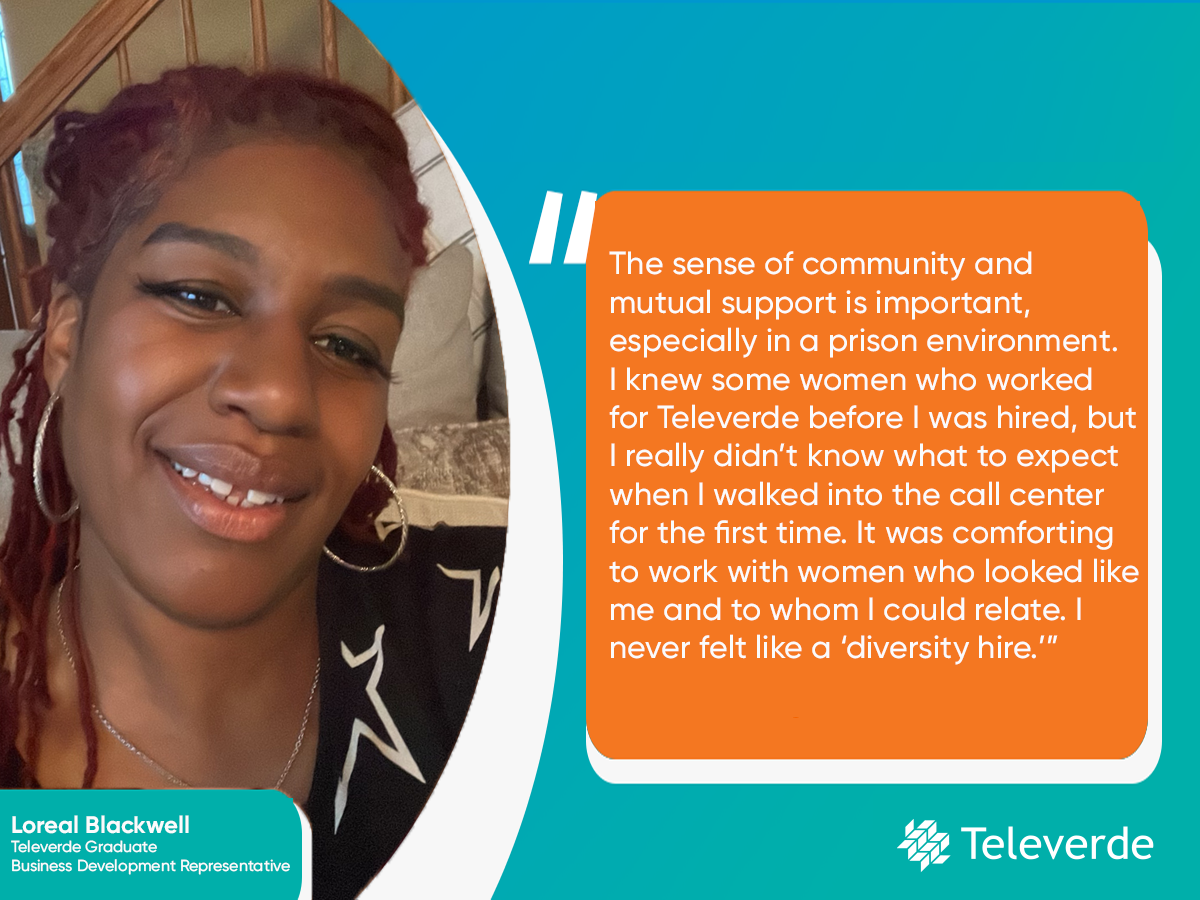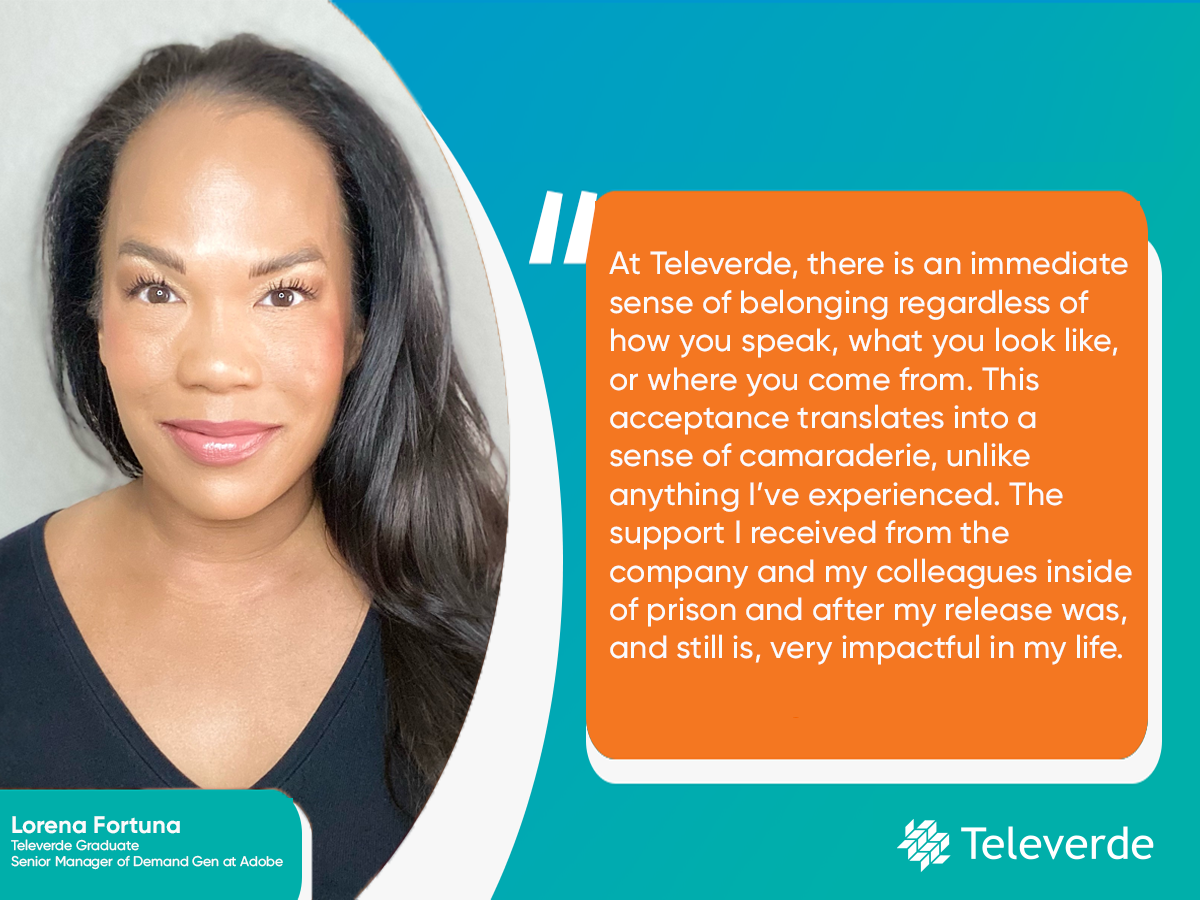I Worked for Televerde While Incarcerated and My Labor Was Not Exploited
How many of us can truly say that our jobs changed our lives for the better? For many people, I would guess that their job feels like an obligation rather than an opportunity. I think it’s also safe to assume that most people didn’t start their careers in prison. I started working for my current employer, Televerde, while incarcerated and it completely changed my life path. Since being released from prison, I’ve seen some questions arise about the company and its prison model, and I want to add my own experience to the conversation.
When I first arrived at Rockville Correctional Facility in Indiana, I didn’t have hope for my future. I was still in my 20s and looking at a decades-long sentence. From the moment I entered the prison, I was eager to do what I needed to do to get back to my life outside of those walls. But as an incarcerated woman, opportunities to set me up for success were limited. And even when I was eventually released, I would need to overcome the double stigma of being a Black woman with a criminal record.
Women are the fastest growing segment of the incarcerated population, and we have even fewer resources afforded to us than incarcerated men. In my experience, there is not nearly enough investment in programs that prepare us to successfully reenter our communities. That’s why many people see prison gates as revolving doors. The U.S. releases more than 600,000 people from prison each year. However, within 3 years of their release, 2 out of 3 people are rearrested and more than 50% are incarcerated again. I didn’t want to be another statistic.
When I first learned about Televerde, I knew I had to try to get a job there. It was the best-paying job available at Rockville, which was a big motivator. But more than that, it seemed like one of the few opportunities available where I could learn marketable business skills that would help me land a good job outside of prison. I applied, was interviewed, and was eventually offered a role as a lead development representative working in their prison-run call center.
I never had a corporate job before, and with no previous business experience, I was intimidated. The training was intense, and at times it felt more like boot camp than an orientation. But I needed every bit of that information to perform well on the campaign I was assigned to. And from day one, it was made clear that we are a team. If there was something I didn’t know, or if I needed help, I could ask someone.
That sense of community and mutual support is important, especially in a prison environment. I knew some women who worked for Televerde before I was hired, but I didn’t know what to expect when I walked into the call center for the first time. It was comforting to work with women who looked like me and to whom I could relate. I never felt like a “diversity hire.” (And since my release from prison, I’ve learned that 14% of Televerde’s incarcerated workforce in Indiana is Black, compared to 12% of the total incarcerated population at Rockville.)
What I really appreciated, and still do, is that throughout my training, I never felt pressure to be anyone other than myself. I learned lots of new professional and technical language, but I was always encouraged to use my voice.
Fast forward several years and I’m no longer at Rockville, but I am still working for Televerde. After being released from prison and graduating from Televerde’s program, I was offered a role as a business development representative. The career growth that started while I was incarcerated has continued, and I am on track to becoming an account executive on the sales team by next year. I was told by my manager once that I wasn’t cut out for sales. He wanted me to prove him wrong, and that became my top goal. And because mentorship is a major component of our company culture, our vice president of Sales is personally helping me grow into my next role. She embodies the “win-together” mentality that this company is all about. I can’t wait to pay it forward.
People shout exploitation every time a for-profit company is working with prison labor, but it isn’t always the case. Exploitation means that only one side stands to benefit. And I can’t imagine what my life would be like today if I had never applied to work for Televerde. I learned all the hard and soft skills I need to succeed in the business world, built up my confidence, and gained a system of mutual accountability that I know will keep me on the right track now that I’m back home. Of the more than 3500 incarcerated women who have been through this program over the last 27 years, choosing to work for Televerde was the first and biggest step toward building better lives for ourselves.
Loreal Blackwell is a business development representative for Televerde, having previously worked for the company for 8 years as a contractor while incarcerated at Rockville Correctional Facility.


